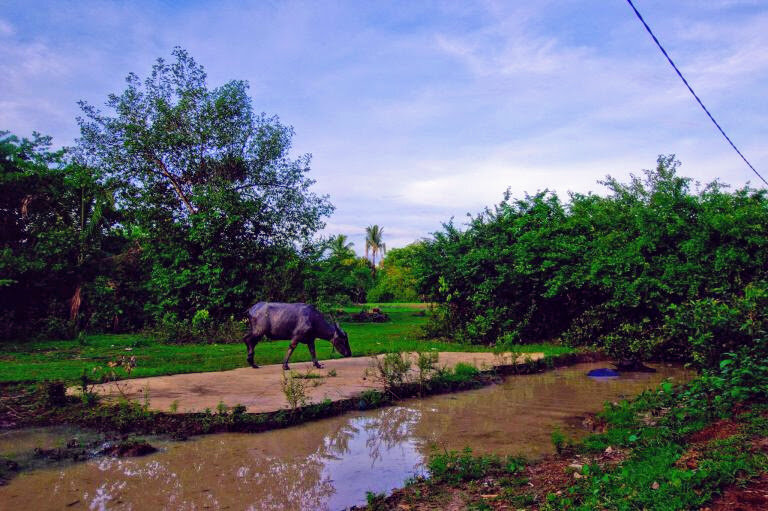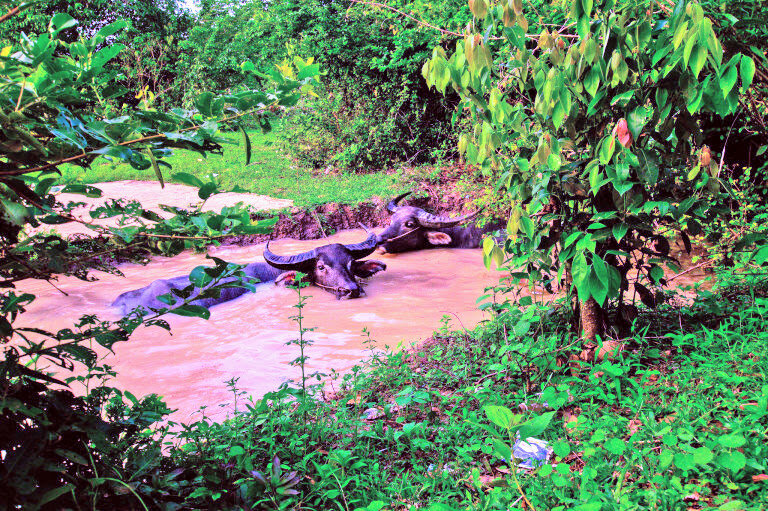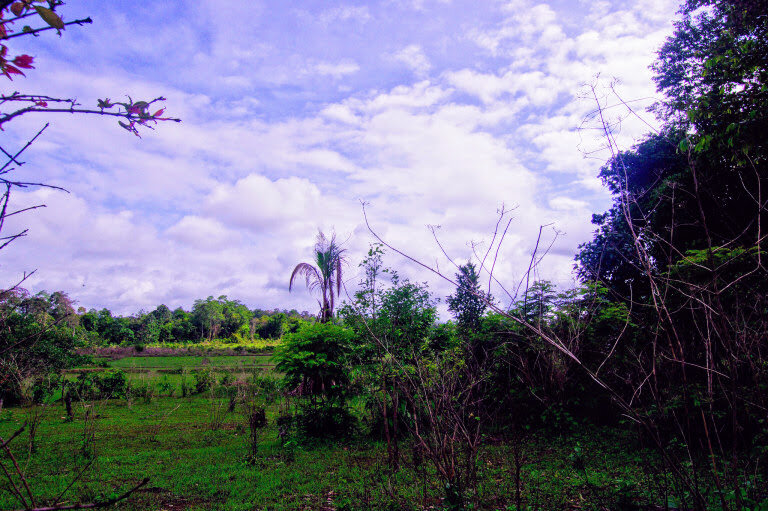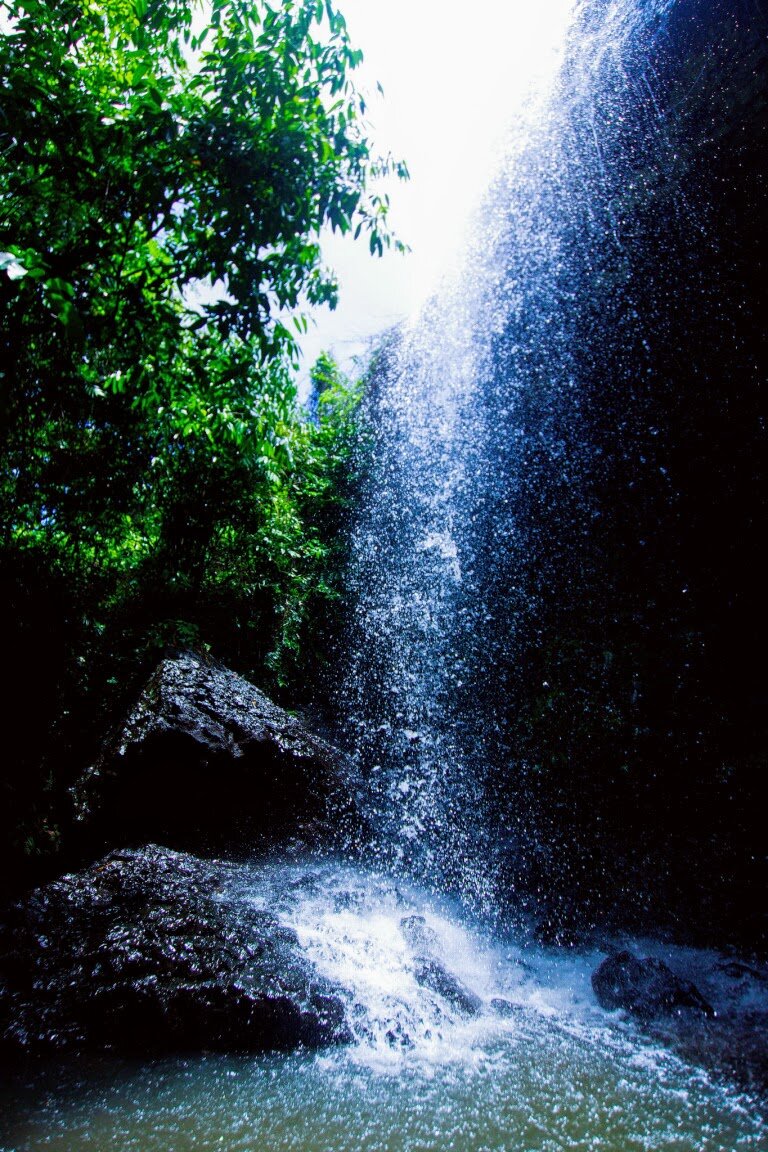Cambodia: Chi Phat Ecotourism
After construction in Pongro Senchey was (nearly) done, we had a little gathering to present our work and process to the greater RUFA community. Several of the community leaders from Pongro Senchey came to say a final goodbye. It was so nice to see them outside of the community, and they told us they were so happy to have worked with us. I was on the verge of tears hearing the sweet things they had to say about us and our work, and one of my favorite collaborators was in full-blown sob mode by the end.
The next morning we took off at 7am for our retreat in Chi Phat, a community-based ecotourism site in the southwest of Cambodia in the Cardamom mountains. The Cardamom mountains and the Koh Kong Conservation Corridor represent a conservation area and one of the largest protected wilderness areas in Southeast Asia. Large mammals such as Asian elephants and sun bears still live and migrate through this region. Illegal logging has devastated Cambodia, and natural forest cover has been reduced to 55%, down from 73% in 1993. Deforestation contributes to erosion, flooding, and once a rainforest is fragmented it is more likely to have a reduction in biological and ecological diversity, and is more prone to fire. The Cambodian government has very odd, easily misappropriated, and poorly enforced laws surrounding logging and forest conservation and illegal logging is still widespread.
Community-based ecotourism is a fairly new concept for Cambodia, having been introduced in the last 10 years. Cambodia Has been war-torn, and was and still is subject to illegal logging and poaching in the aftermath. Illegal logging is the product of foreign businesses taking advantage of the poor enforcement in Cambodia, and a lack of options for gainful employment within Cambodia’s undiversified economy. Rural Cambodians have limited access to the economies of tourism and the garment industry concentrated in Phnom Penh and Siem Reap; many poor rural Cambodian families rely on remittances from city workers. Community-based ecotourism presents an opportunity for rural communities to steward the forests and landscapes they live in and create a viable source of income.
In 2007 an NGO called Wildlife Alliance established the Chi Phat community-based ecotourism site. They built a bamboo structure with bathrooms, a kitchen, bar, offices, and a gear storage space. Another organization began an initiative to reforest the mountains, built a forest nursery, and educated women in the area on tree production and planting. Prior to the trip, our professor shared an article with us about Chi Phat which indicated many people in the community stopped poaching and logging because they found more stability in ecotourism. When we visited the site, we even met some guides that had moved from Phnom Penh to Chi Phat to be part of the organization!
Photos from Davi de la Cruz!
The journey to Chi Phat is quite a journey. We left Phnom Penh at 7 in the morning, rode a bus for 4 hours to a shack off the side of the road where Chi Phat employees greeted us with Angkor beers. We then took a 2-hour boat ride down the Stoeung Russei Chrum River. It was beautiful, bounded on either side by jungle, palms, and mangroves. We saw lobster and freshwater fisher-people along the way, as well as a little temple perched on a rock outcropping. Unfortunately I do not have photos from my journey because my phone was stolen.
Chi Phat was incredible, even though I came down with a fever the night before we left. I didn’t tell the professor because I was afraid I wouldn’t be able to go on the trip. Luckily Grayson got sick too, so we didn’t do the originally-planned two-night backpacking trip, since I would have been in a really bad way. I tried to do a mountain biking excursion on our first day and felt so nauseous and disoriented I had to turn back less than halfway through the first leg. I ended up having a fever for four days, and couldn’t keep food or water down.
When we got back to Phnom Penh I was diagnosed with chikungunya and salmonella. I had a hard time standing or sitting up for extended periods since I was so dehydrated. I had originally planned to travel for the week after the program ended on June 4th, but I was advised not to leave Phnom Penh or to be too far from medical care. I was able to change my flight, and came back a week earlier than intended, which was sad but an important move for myself. I spent a week in Seattle on my dear friends’ couch catching up on sleep, taking antibiotics, and watching HBO and comedy central shows, trying to get my health back. It took a full week for me to ride a bike, and another three weeks to feel like I could work out safely.




